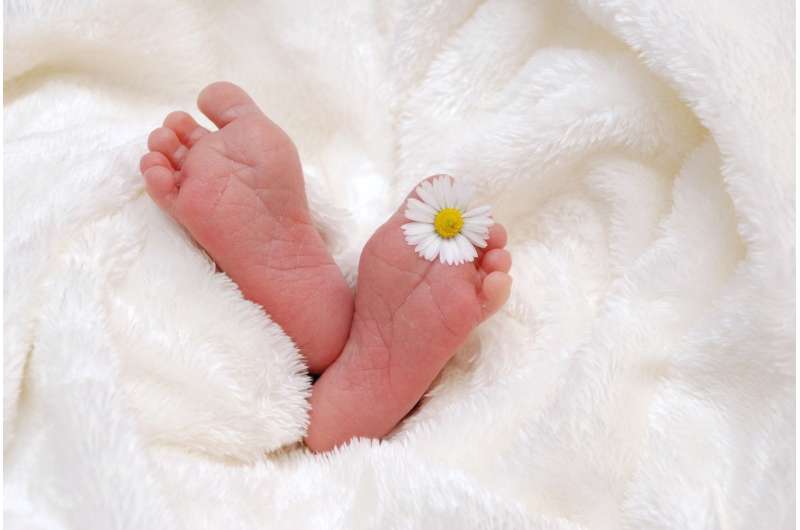If women's birth choices aren't supported, they may go it alone

A Western Sydney University study has found that women may be prepared to deliver their babies at home, unassisted, if Australia's maternity health system is not reformed.
Honours student Heather Sassine, under the supervision of Professor Hannah Dahlen from the University's School of Nursing and Midwifery, surveyed 1681 women who had planned a homebirth in Australia as part of the 'Why do women choose homebirth in Australia?' study.
The results, published in Women and Birth, indicate that giving birth at home with a registered midwife was the preferred choice for 61 percent of the women.
However, half of all respondents indicated that if there was no access to a publicly-funded homebirth, or a registered midwife was not available, they would be prepared to have a freebirth—that is, give birth at home without a registered midwife, or without any healthcare provider in attendance.
Professor Dahlen said the findings are concerning, as—while giving birth at home with a registered midwife in attendance is a safe option for many women and their babies—freebirth is not the best option for women.
"There are women in Australia, some of whom have complex pregnancies, who are choosing to give birth at home without a midwife," said Professor Dahlen.
"There is a stereotype that these women are selfish, misinformed or are not acting in the best interests of their child—but that's absolutely not true. In fact, these women are very well-informed, and are driven toward alternative births due to fundamental flaws in the maternity health system in Australia."
The 'Why do women choose homebirth in Australia?' study highlights a range of factors that ultimately influence women's decisions to plan a homebirth. These include:
- Personal research, or information from childbirth education classes;
- Exposure to friends or family who had homebirths;
- Dissatisfaction with the care they were receiving;
- Pressure to accept interventions they were not comfortable with;
- Pressure to have a repeat caesarean;
- A lack of suitable birth choices being offered, including a lack of access to waterbirth; and
- Previous birth trauma, including the diagnosis of post-traumatic stress disorder (PTSD) following a previous birth.
Professor Dahlen said the Australian health system is fragmented and inflexible and does not give women adequate options for quality maternity care.
"These fundamental flaws have never been more apparent than during the COVID-19 pandemic—when more women sought out the option of a homebirth, but there were not enough midwives or government support to meet the demand. If anything, the numbers of midwives providing homebirth care has declined in recent years."
The factors that influence where and how a woman chooses to give birth are also examined in Professor Dahlen's new book, Birthing Outside the System—The Canary in the Coal Mine. In the book, Professor Dahlen describes previous birth trauma as one of the biggest factors, driving women away from the Australian healthcare system.
"There are women, who have previously experienced traumatic births, who are our 'canaries in the coal mine'," said Professor Dahlen.
"These women are warning us that our healthcare system is often emotionally unsafe. Rather than blaming them for wanting to birth outside of mainstream hospitals, we need to recognise and fix the issues that are driving them to do so."
Professor Virginia Schmied, from Western Sydney University's School of Nursing and Midwifery, and lawyer Bashi Kumar-Hazard, from Human Rights in Childbirth and the University of Sydney's School of Law, also co-edit and contribute chapters to the book, alongside a range of experts predominantly from Western Sydney University.
Published by Routledge, the book represents over a decade of cross-disciplinary research and examines the birthing experiences of women and medical professionals. With more than 36 authors from 11 countries and nine different professions, the book is the most comprehensive to date on why women avoid mainstream care.
More information: Heather Sassine et al. Why do women choose homebirth in Australia? A national survey, Women and Birth (2020). DOI: 10.1016/j.wombi.2020.06.005



















